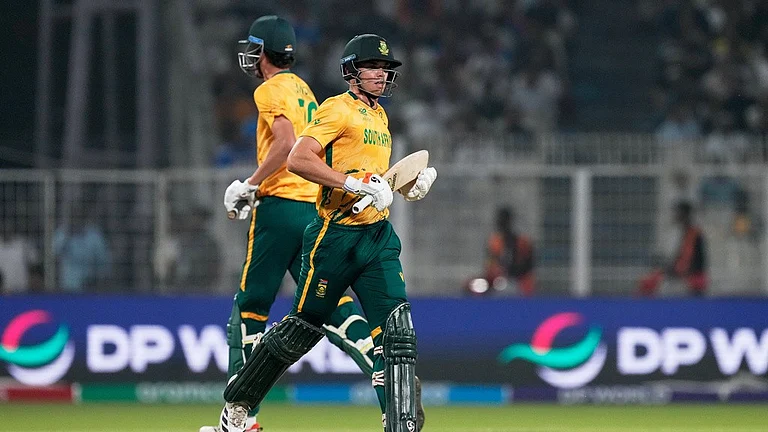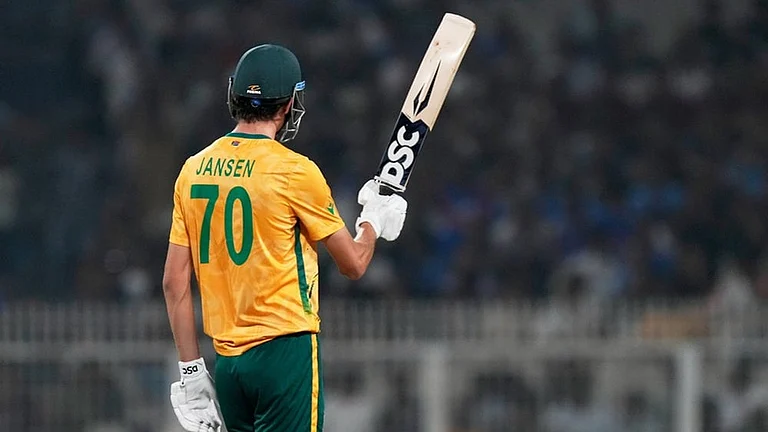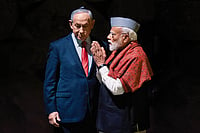India’s foreign policy under Prime Minister Narendra Modi is touted by his supporters as path-breaking, as he has succeeded in making India’s voice count on the world stage, something the others were unable to do. This is the common man’s perception, helped no doubt by the relentless drum beating by the BJP media cell which goes all out to sell the PM and his image.
But this is far from the truth. Foreign policy has little to do with individuals but the permanent interests of nations. India, a democratic country of over one billion people has always been important, more so after the 1991 economic reforms opened up the country’s markets to the world.
Jawaharlal Nehru was a leading international figure of his times, and one of the founders of the non-aligned movement, Indira Gandhi may have been disliked by Richard Nixon and his secretary of state Henry Kissinger, but she was responsible for the creation of Bangladesh.
Manmohan Singh who was leading a fragile coalition and had to threaten to quit as PM for the party to back the India-US nuclear deal. Many in the Congress were not sure it would serve India’s interests. When in opposition the BJP opposed it tooth and nail. But Singh persisted and brought about a transformation in India’s ties with the US and the western world.
There is no doubt that compared to Manmohan Singh, Narendra Modi is a much more dynamic and energetic leader with an enviable majority in Parliament. He can chart his own course without anyone raising an eyebrow. Yet he has not recklessly opted for a different course, despite much talk about a muscular foreign policy. In the interests of the country, he has continued the path already laid out but has tweaked it here and there and adjusted to the changing dynamics of the current flux in international affairs. Foreign policy is never static as every country needs to adjust to the changing world around.
India was already moving towards the quad during Manmohan Singh’s tenure, but the Chinese threat had not been under such sharp focus either to New Delhi or the rest of the world. However since Donald Trump called out China, and Beijing’s move across the Indo-Pacific rattled the world and made the US regard China as a future competitor, the international community’s view on China has changed. President Xi Jinping did nothing to allay these fears and in the summer of 2020, the PLAs incursions into India led to a brief military confrontation between the two Asian neighbours. Any hesitation Indian leaders had on joining the quad, quickly evaporated. The quad, regarded as a formation to contain China has been growing in stature with Joe Biden raising it to a summit-level engagement. The quad is not a military alliance but has all the makings of becoming an important element of the Indo-Pacific defence architecture in future. Since the 2020 Chinese incursions into Ladakh, the threat from China has become a major headache for India. So being a part of the quad was a natural move for the Modi government. The breadth and scope of India-US relations have extended exponentially in every field. Yet India is not just a camp follower of the US, which Modi proved during Russia’s invasion of Ukraine. Despite enormous pressure from the US and its NATO allies, India broke rang with the quad by refusing to condemn Russia as the aggressor. Instead, New Delhi did a delicate balancing act, refusing to vote against Russia at the UN and opting to remain neutral. India also provided humanitarian aid to Ukraine. At the same time, New Delhi picked up oil at a cheaper rate from Russia and when criticised for doing so pointed to Europe’s dependence on Russia's oil and gas. India has drawn the red lines when it comes to national interest and has unapologetically gone ahead with what suits its people. All major powers do this but developing nations are often browbeaten into following a powerful country for economic or strategic considerations. India from the early years of independence has chosen to strike its own path.
The policy now is to engage with every country on points of convergence but not get into alliances allowing India the freedom to differ on issues which are vital to its self-interest. It is basically strategic autonomy though the term is not favoured by the Modi government.
Prime Minister Modi has often borrowed from the Congress concepts and packaged them to adjust to the present times. His "act East policy’" is from former Prime Minister Narasimha Rao’s "Look East" agenda. Rao a consummate politician and thinker had coined the phrase to emphasise India’s focus on East Asian countries. India’s engagement with ASEAN has matured over the decades since the policy to focus on East Asia was launched.
Modi’s neighbourhood first policy is again not new. All Indian Prime Ministers have talked about relations with neighbouring countries as the most important. But Modi lent it dynamism by personally visiting each of India’s neighbours soon after taking office in 2014. Unlike in the past, China is now an important player in India’s backdoor, and New Delhi has to be constantly in competition with Asia’s raising dragon.
Modi’s engagement with the neighbours has been much more pronounced than of his immediate predecessors. There have been missteps while engaging with the neighbours. India’s unhappiness over the unveiling of Nepal’s new Republican Constitution in 2015, which allegedly discriminated against the Madhesi’s – Indian origin settlers in the plains adjoining Bihar, led to a blockade of Nepal. This caused immense distress in landlocked Nepal dependent on India for all essential supplies. This pushed Nepal further into the Chinese camp with the then PM KP Sharma Oli playing the China card against India. But fortunately for India, the squabbling among the Communist party allies led to the collapse of the Oli government. With Nepali Congress leader Sher Bahadur Deuba as PM, there has been a sea change in relations with India.
One of Modi’s major successes has been in ties with the Gulf countries where he has given an economic and political dimension to ties. While it was the pragmatic Narasimha Rao who first upgraded relations with Israel that have flowered under the BJP government. With the winds of change blowing across West Asia, an India-UAE -Israel -and US quad is taking shape.























